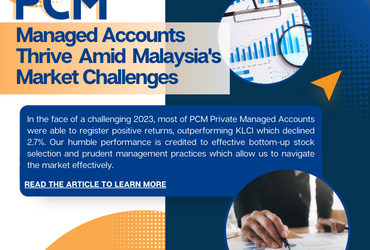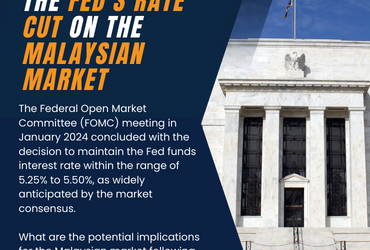
Environmental, Social, and Governance (ESG) matters have gained significant importance for both corporations and investors in the recent years. Corporations are facing mounting pressure to take accountability for their actions and their impact on the world, while investors are demanding for greater transparency and responsibility in their investments. In addition to environmental aspects which we discussed earlier; governance is also a crucial factor to be considered. In particular, transparency and board independence are essential in ensuring ethical and sustainable business practices. The main objectives of ensuring effective governance in place include implementing well-documented and comprehensive guidelines, ensuring compliance with rules and regulations, mitigating risks, and maintaining a system of checks and balances. All these factors are crucial to achieving business objectives while taking into account the interests of all stakeholders involved.
Transparency & Disclosure
In the realm of ESG, transparency plays a critical role in enabling stakeholders to comprehend a company’s influence on society and the environment. Transparency fosters trust, preserves a positive reputation, and attracts investment. One way for companies to achieve transparency is by issuing detailed ESG Reports or Sustainability Reports that showcase their sustainability initiatives and progress. Such reports should cover areas like environmental impact, social responsibility, and corporate governance practices. By providing such information, companies can display their dedication to sustainability, identify areas for improvement, and minimise their effects on society and the environment.
Board Independence
Board independence is another crucial element that ensures a company’s leadership is not influenced by any specific interest group or agenda. The presence of independent directors on a board helps to ensure that board members can offer objective insights and impartial recommendations that are not swayed by internal politics, management, or shareholder interests. This, in turn, leads to better decision-making and reduces the likelihood of conflicts of interest. In addition to that, independent directors bring valuable outside expertise and help to maintain a balance between the board and management. By doing so, companies can demonstrate their commitment to transparency, accountability, and responsible corporate governance, which can ultimately benefit their reputation and enhance their sustainability.
Malaysia’s context
Although significant progress has been made in enhancing ESG reporting and governance practices in countries such as Malaysia, there is still more work to be done. In April 2021, the Securities Commission Malaysia (SCM) updated the Malaysian Code on Corporate Governance (MCCG) to promote good corporate governance practices among listed companies in Malaysia. The revised MCCG places greater emphasis on the roles and responsibilities of the board and senior management in managing sustainability risks and opportunities.
The MCCG, which has undergone several revisions since its introduction in 2000, provides a set of internationally recognised corporate governance principles that surpass the minimum regulatory requirements set by Bursa Malaysia. The most recent update in 2021 aims to further advance the implementation of good corporate governance practices and to encourage companies to adopt sustainable practices that are beneficial to all stakeholders. While progress has been made, there is still much to do to achieve greater transparency, accountability, and sustainability in corporate governance practices.
Board composition has seen positive changes in recent years, with a greater emphasis on increasing the participation of women. Furthermore, measures such as the introduction of a 12-year limit on the tenure of independent directors, with no further extension beyond the 12th year, and discouraging politicians from serving on boards have been implemented to strengthen board independence and quality, and prevent conflicts of interest.
All in, these developments are crucial for enhancing transparency, accountability, and sustainability in corporate governance practices. Encouraging transparency in company disclosures and promoting diversity and independence in the boardroom can lead to more inclusive, unbiased decision-making processes that align with the interests of all stakeholders. This, in turn, can improve risk management, drive better decision-making, and ultimately result in stronger long-term performance for companies.
Phillip Managed Account for Retirement (PMART) ESG and Phillip Managed Account (PMA) ESG
PhillipCapital Malaysia offers discretionary portfolio that invests in stocks with high ESG ratings from the F4GBM and F4GBMS Indices, namely PMART ESG and PMA ESG. There are both conventional and Shariah options available. PMART ESG and PMA ESG are suitable for investors who want to optimise the risk-adjusted return by constructing a diverse sustainable portfolio of ESG companies. To access the list of stocks in which we have invested, kindly click on the link provided.
Please click on the link to learn more or email us at cse.my@phillipcapital.com.my if you require any further information.
Disclaimer:
The information contained herein does not constitute an offer, invitation or solicitation to invest in Phillip Capital Management Sdn Bhd (“PCM”). This article has been reviewed and endorsed by the Executive Director (ED) of PCM. This article has not been reviewed by The Securities Commission Malaysia (SC). No part of this document may be circulated or reproduced without prior permission of PCM. This is not a collective investment scheme / unit trust fund. Any investment product or service offered by PCM is not obligations of, deposits in or guaranteed by PCM. Past performance is not necessarily indicative of future returns. Investments are subject to investment risks, including the possible loss of the principal amount invested. Investors should note that the value of the investment may rise as well as decline. If investors are in any doubt about any feature or nature of the investment, they should consult PCM to obtain further information including on the fees and charges involved before investing or seek other professional advice for their specific investment needs or financial situations. Whilst we have taken all reasonable care to ensure that the information contained in this publication is accurate, it does not guarantee the accuracy or completeness of this publication. Any information, opinion and views contained herein are subject to change without notice. We have not given any consideration to and have not made any investigation on your investment objectives, financial situation or your particular needs. Accordingly, no warranty whatsoever is given and no liability whatsoever is accepted for any loss arising whether directly or indirectly as a result of any persons acting on such information and advice.



